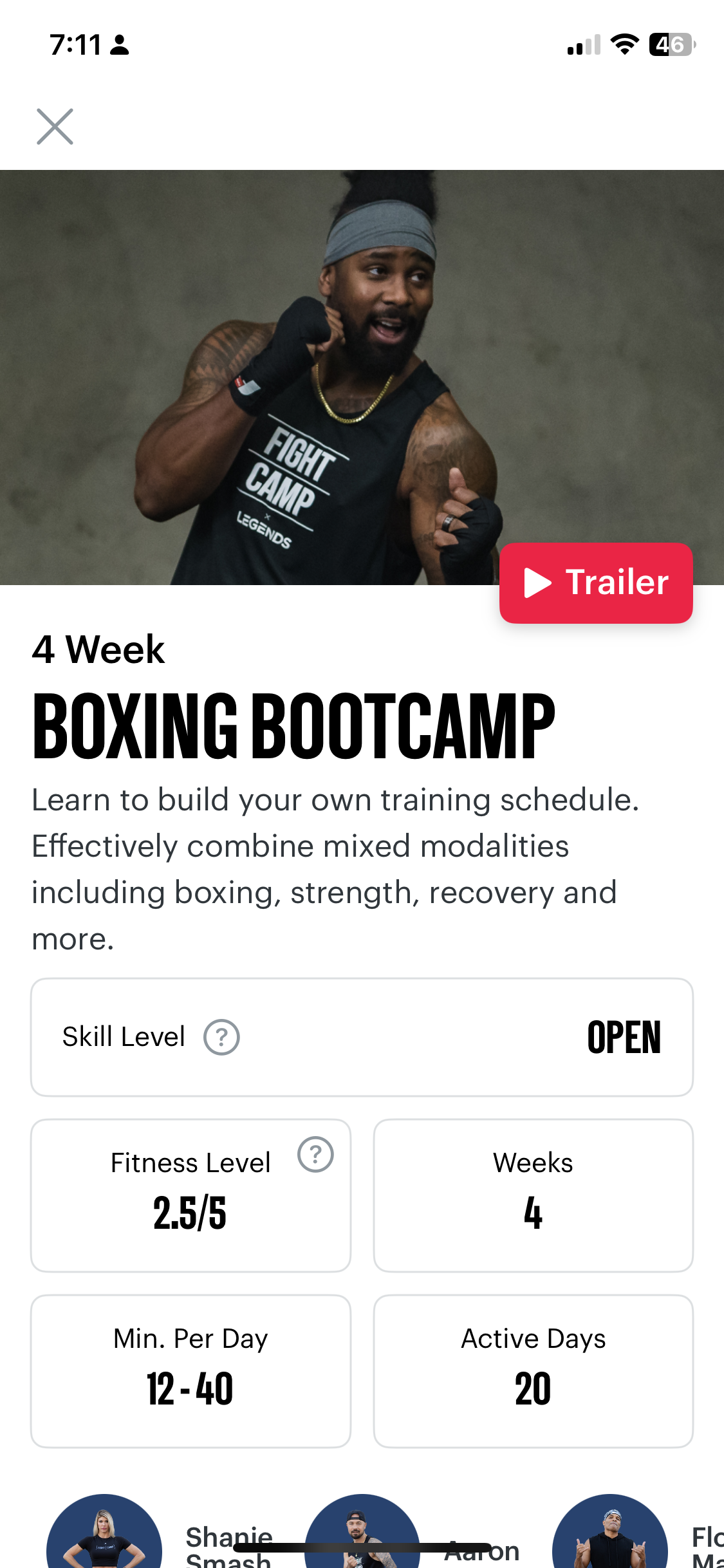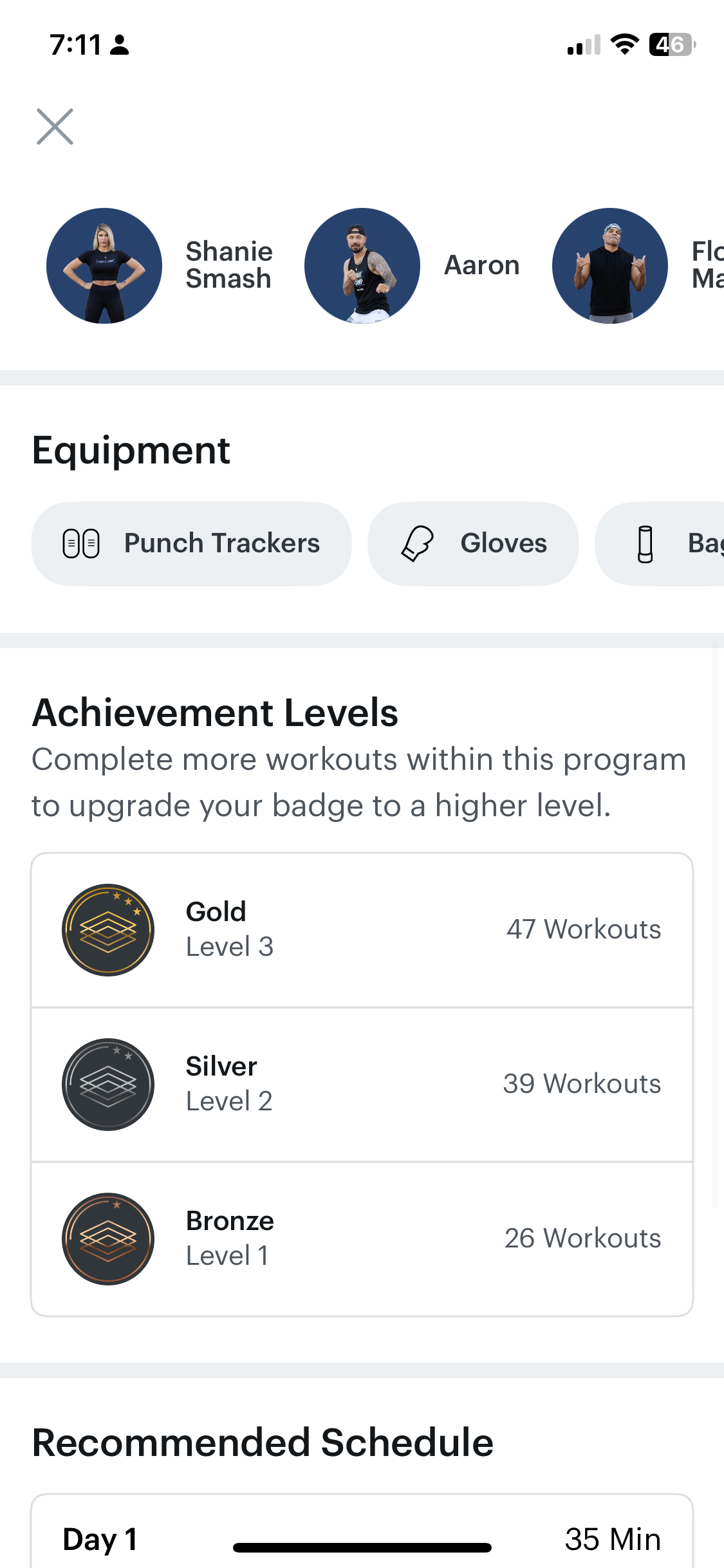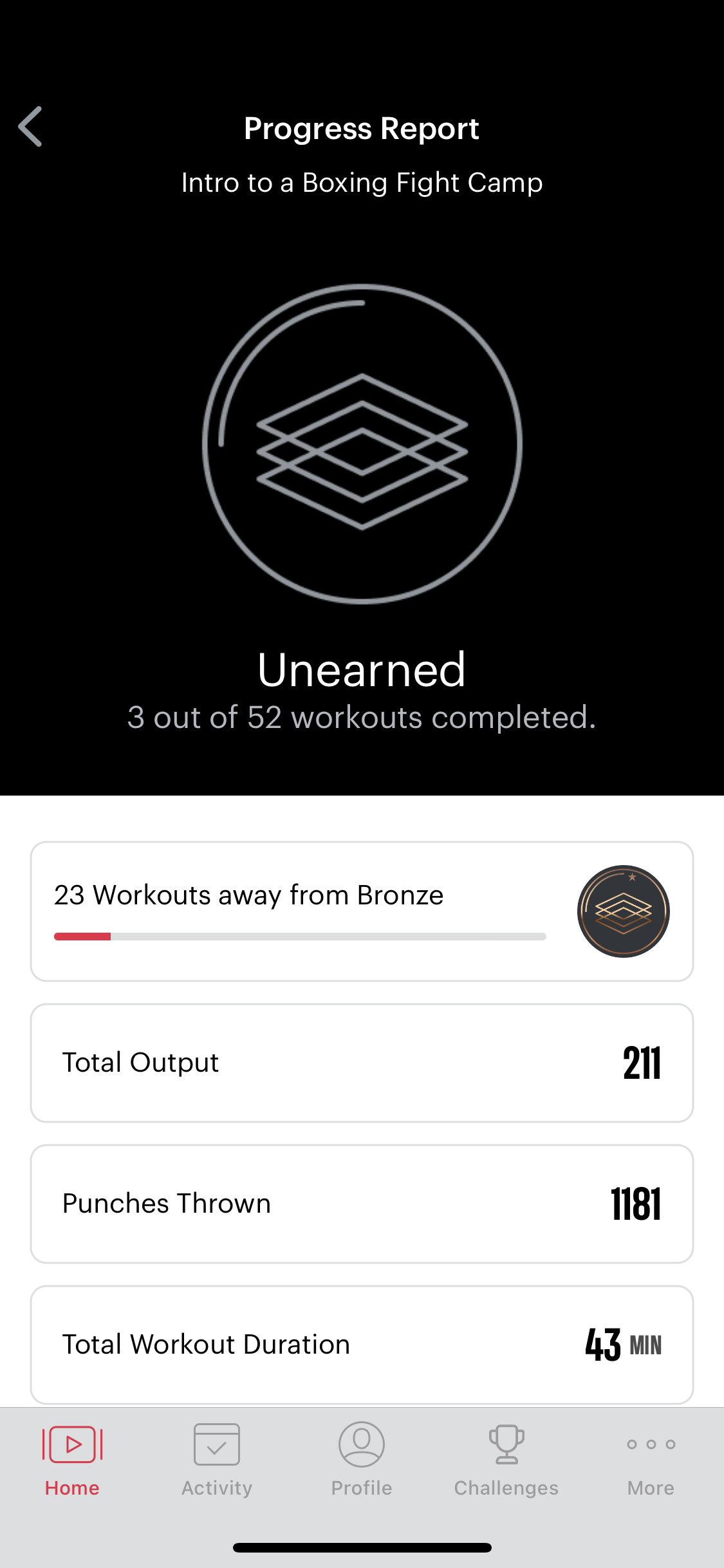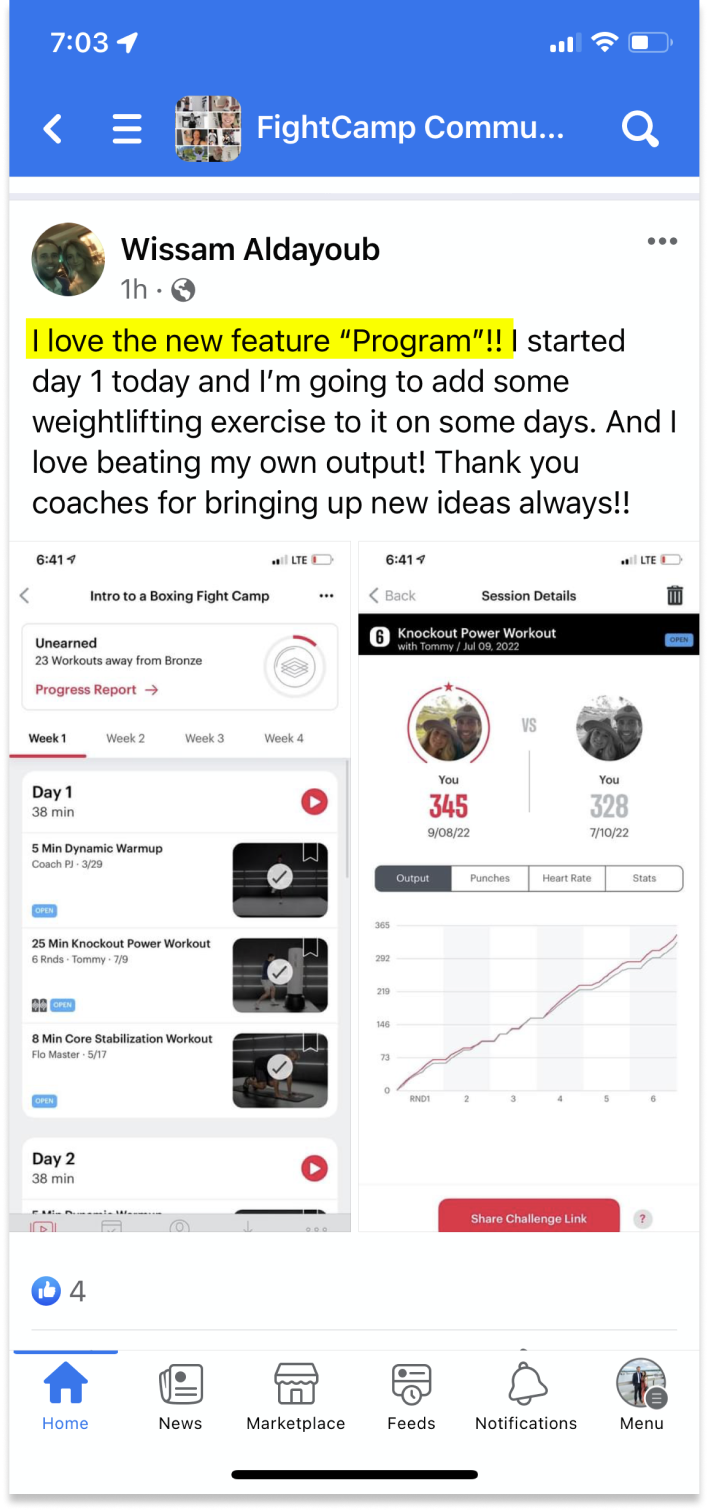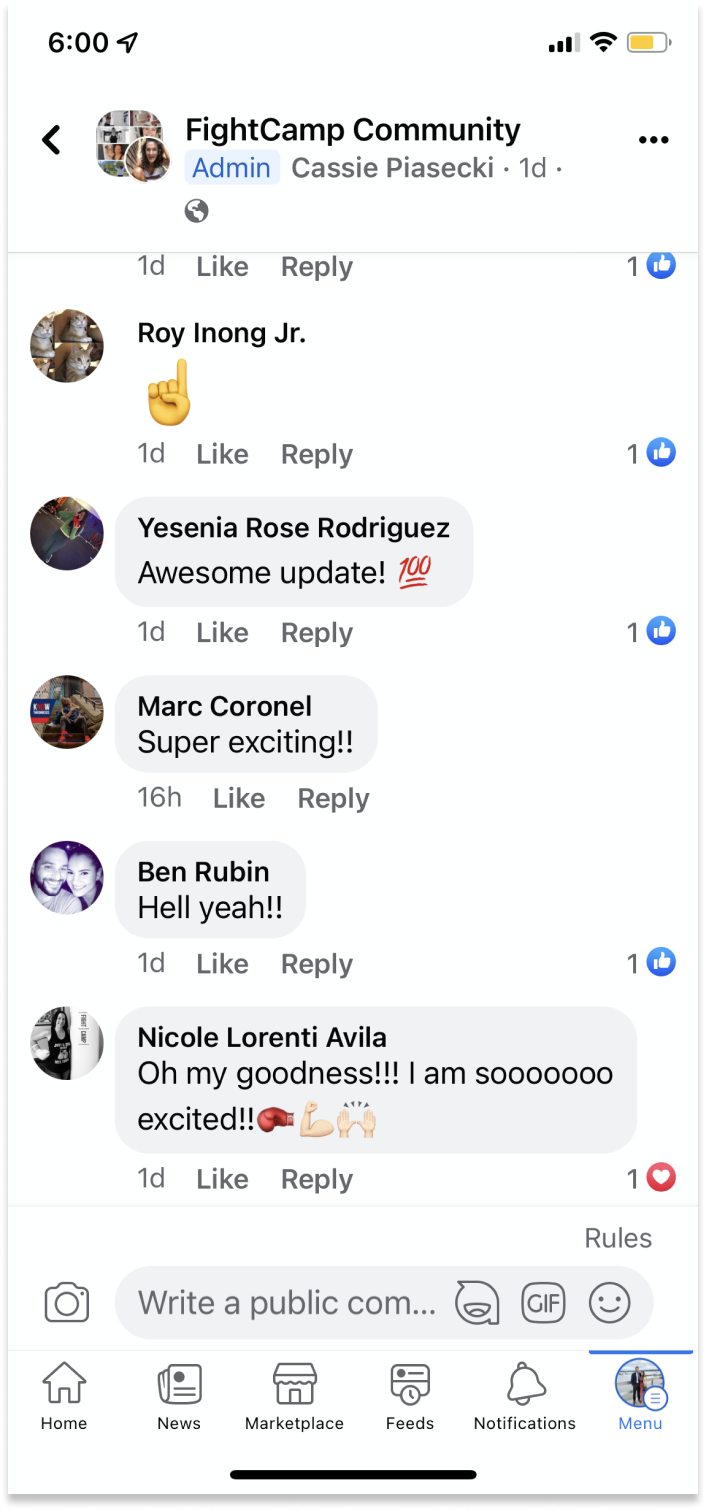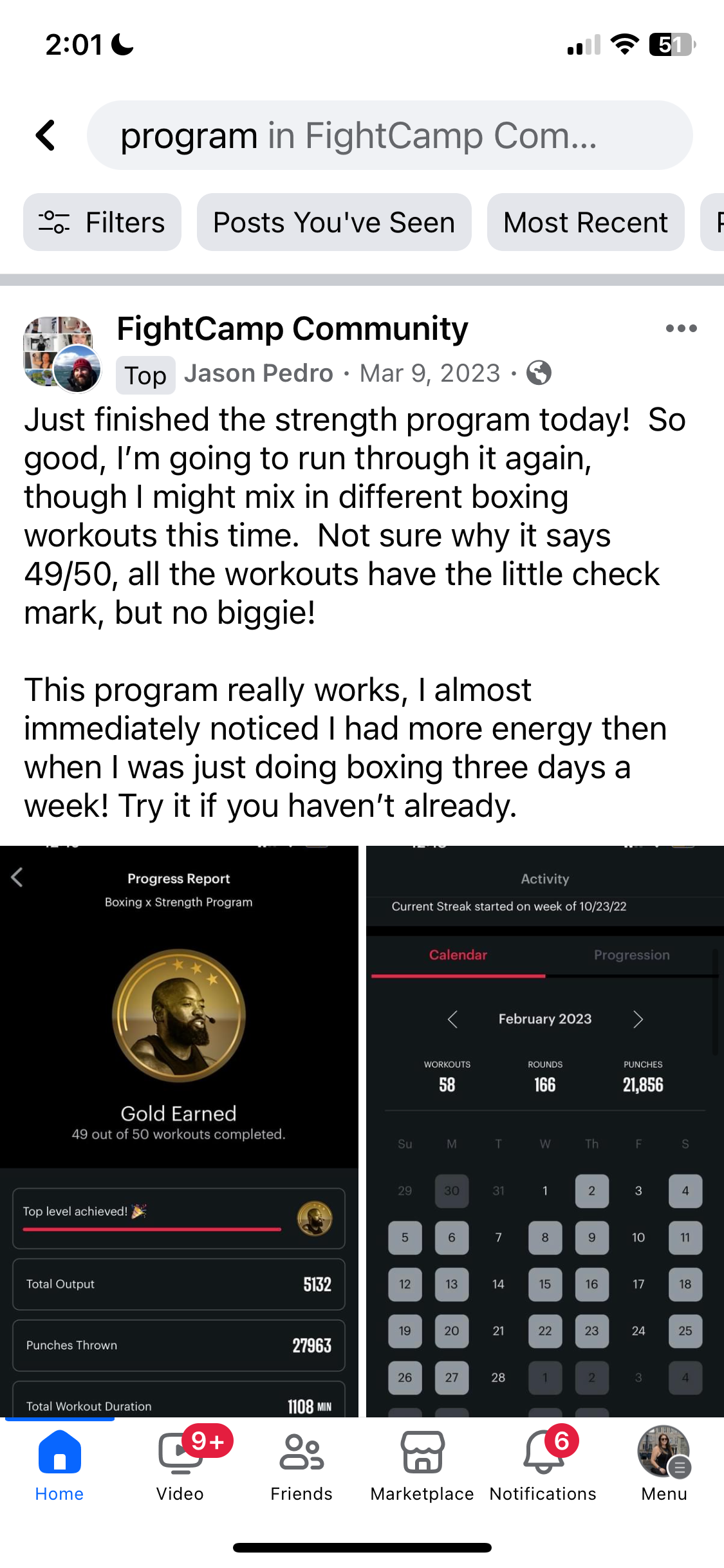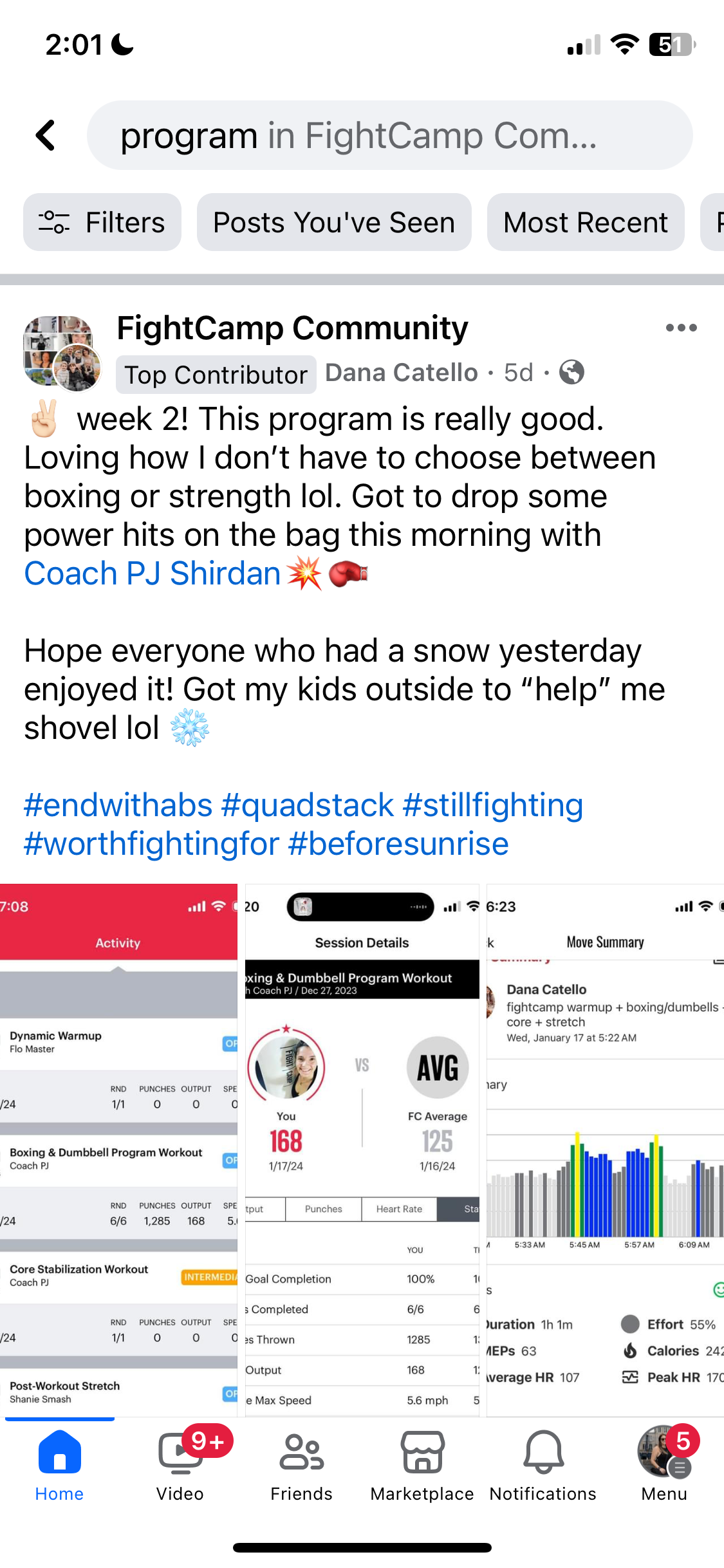FightCamp
Adding Programs
FightCamp is a home boxing gym that is connected to devices like phones and tablets. It provides access to hundreds of on-demand classes, which can be used anytime, anywhere. With its special punch-tracking technology, it helps users stay motivated and make the most out of their workouts. FightCamp is currently available in the United States and has 30,000 monthly active users.
My Role
Lead Designer, UX Research
Project Scope
End to End
Team
1 PM, 1 Lead IOS engineer, 1 Backend engineer, 2 Fightcamp trainers
Fightcamp has paths within the app, which are structured learning chapters that eliminate guesswork when choosing a workout.
Paths include workouts, drills, tutorials, and stories about the trainers.
40% of our users were not completing the Paths they started.
I wanted to understand why?
My process
01 Understand
Who are our users?
Stakeholder interviews
Gathering insights via user surveys
Interview users who have started a Path
Competitive analysis
02 Explore
Ideate ideas in low-fi
Mid-fi with dev trade-offs within the scope
03 Materialize
Hi-fi, visual components, dark mode, iPad
Prototype to test in-house
Handoff guide
Who are our users?
Between the age of 30 - 60
Makeing $60k - $200K+ a year
Occupations: Nurse, Finance, Manager, Director
58% have children
I sent out a Google survey with 15 questions and received responses from 360 users.
I selected 15 users for a one-hour Zoom user interview.
I wondered if users were skipping any parts of the Path and why.
I was interested in understanding why users weren't completing Paths. I assumed they didn't want the extra content—the 360 User Google survey data.
What I discovered…
60% of our participants started a Path for the structure instead of choosing workouts daily
If our users are seeking structure, would programs meet their needs?
Defining what success looks like for this feature with the product team.
-
By providing them with structured workout plans that meet their needs for organization and progression.
-
Increase the number of users who complete the workout plans by catering to different skill levels and preferences.
-
Improve user satisfaction and loyalty by providing a workout experience that is tailored to their needs and preferences.
-
By positioning the company as a leader in providing personalized and effective workout plans.
47% of users abandoned a Path because it was too advanced or easy.
This feedback became an opportunity to make it easier for users to understand which program is suitable for them. Additionally, users expressed uncertainty about the duration of the path they took to complete their program.
65% indicated they stacked workouts when on a path.
While taking a Path, a user would have to take off their boxing glove, go back into the path, and hit play on the next section of the chapter.
Our users needed a quick and convenient way to determine the total duration of their workout.
100% of our participants felt excited to share their progress and stats with our FightCamp Facebook community.
Users received one badge after completing 50 classes on a Path. We introduced achievement levels to motivate users as they progress through the program.
80% of our Google survey indicated they only take one path at a time.
To access their Path, users had to scroll down the homepage to find it and search for where they had left off, which was inconvenient. I aimed to enhance the ease and convenience of returning to the program they left off, so they can continue with their daily tasks without any hassle.
“It’s not done until it ships”- Steve Jobs
I like to make sure to communicate with my team early and often. When I pass over designs, engineers have a full understanding of the work as they are part of the process. I like also to make sure to include clear descriptions of what elements are from our design system or will be added to our design system.
Results: 80% of the users who initiated a program completed it
Our retention rate has increased, and we have received rave reviews on our FightCamps Facebook community page.

